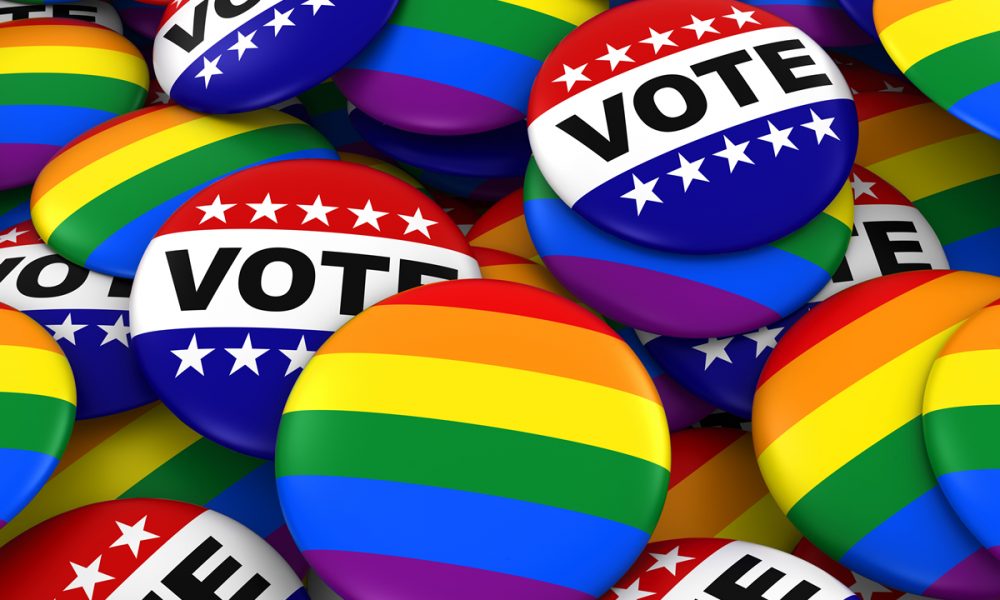Is being LGBTQ enough to earn your vote?
July 13, 2023 12:00 am
History! That’s what this U.S. Supreme Court accomplished last Friday with its most recent decision toward the LGBTQ+ protected class. It’s the first time in history that a Supreme Court, despite the composition of its members, has restricted rights and benefits to a protected class instead of granting them more. The Supreme Court, throughout history, has been a tent to extend the interpretation of federal laws to give more rights and include more protected classes within them. Despite the immobility of Congress and the difficulties of getting new bills to become federal law, the Supreme Court has always found a way to create more jurisprudence to benefit vulnerable populations. Until now, unfortunately.
Title VI of the 1964 Civil Rights Act, for example, states that no person in the United States shall, on the ground of race, color, or national origin, be excluded from participation in, be denied the benefits of, or be subjected to discrimination under any program or activity receiving Federal financial assistance. Even though the original text of Title VI didn’t include protections for individuals with Limited English Proficiency (LEP), on Aug. 11, 2000, the president signed Executive Order 13166, “Improving Access to Services for Persons with Limited English Proficiency,” extending national origin protections to LEP individuals. This extension occurred after several Supreme Court decisions where individuals from other nationalities with limited English proficiency couldn’t access the same benefits.
Another example was the first case where Justice Ruth Bader Ginsburg brought to the attention of the Supreme Court the unconstitutionality of a law that limited women’s rights in Idaho. In Reed v. Reed (1971), the first time gender discrimination was recognized as a direct violation of the Constitution and became the basis for future decisions. For the first time in history, the Supreme Court decided that gender/sex equality was classified as a protected class under the 14th Amendment’s Equal Protection Clause. In 2015, Obergefell v. Hodges, 576 U.S. 644 (2015), the Supreme Court ruled that the fundamental right to marry is guaranteed to same-sex couples by the Due Process Clause and the Equal Protection Clause of the 14th Amendment. Finally, in 2020, in Bostock v. Clayton County (Ga.), No. 17-1618, in a historic decision, the Supreme Court extended sex protections under Title VII of the 1964 Civil Rights Act to sexual orientation and gender identity from job discrimination. As we can see, throughout history, the Supreme Court has tentatively extended protections to protected classes instead of restricting them.
Title II of the Civil Rights Act 42 U.S.C. §2000a states that all persons shall be entitled to the full and equal enjoyment of the goods, services, facilities, privileges, advantages and accommodations of any place of public housing, as defined in this section, without discrimination on the ground of race, color, religion, or national origin. This title was challenged several times after its approval by different businesses in the United States. However, in several decisions from the Supreme Court was resolved that Congress didn’t exceed its power under the Constitution’s Commerce Clause to regulate the commerce between states and deny the discrimination against black individuals in their right to equal enjoyment of the goods, services, facilities, privileges, advantages, and accommodations of any place of public housing, under Title II of the Civil Rights Act. The Supreme Court decided in several cases that discriminatory actions against black people during the offering of services affected the economy of the United States and the commerce between the states.
Is race, color, religion, or national origin protected classifications more important than sex, sexual orientation, gender identity, disability, and age? Colorado law prohibits discrimination in places of public accommodation, C.R.S. § 24-34-601 et seq. Like Title II of the Civil Rights Act, Colorado law classifies public accommodations as any place of business engaged in any sales to the public and any site offering services, facilities, privileges, advantages or accommodations to the public. The same law considers it discriminatory to refuse or deny any service against a person because of disability, race, creed, color, sex, sexual orientation, gender identity, gender expression, marital status, national origin and ancestry. Colorado law doesn’t go against the Civil Rights Act of 1964. It’s more comprehensive and extensive. The constitutional right of occupied field doctrine stems from Art. VI, Sec. 2 of the Constitution establishes that in the event of a conflict between a state law and a federal law, the federal law shall prevail if it has been validly approved. The intention to occupy the field can arise explicitly, from the precise letter of the law, or implicitly, according to its structure and purpose. The Supreme Court has repeatedly pointed out that the preemption case law doctrine applies only when Congress expressly occupies the field or when it is evident that Congress intended to exclude state legislation on a given affair. The Supreme Court has constantly expressed that state legislation is not superseded when the interest to be protected locally differs from those covered by federal law.
How is denying public accommodation against people because of their race unconstitutional, but not on the grounds of sexual orientation? It’s clear that Colorado’s law is constitutional since Congress hasn’t occupied the field of limiting the protected class under Title II of the Civil Rights Act, and the Supreme Court has extended its benefits to other types, including orientation and gender identity.
According to the Human Rights Campaign, we live in a state of emergency. More than 400 bills nationwide have been presented against the LGBTQ+ community. It’s not a causality that in the middle of all of this and a significant anti-LGBTQ+ movement, the Supreme Court has taken a historic step against minorities and vulnerable populations. However, when we analyze the reasons behind these cases against the LGBTQ+ community and their right to get married, we can undoubtedly conclude that our fight for obtaining the right to get married hasn’t ended yet. With or without cakes and websites, we will continue to enforce, enjoy and use our freedom to get married. No matter how many legal cases are presented against our right to enjoy a life of equality, we will still get married. But now, more than ever, we will keep fighting for our rights.
Categorised in: News, Washington Blade
